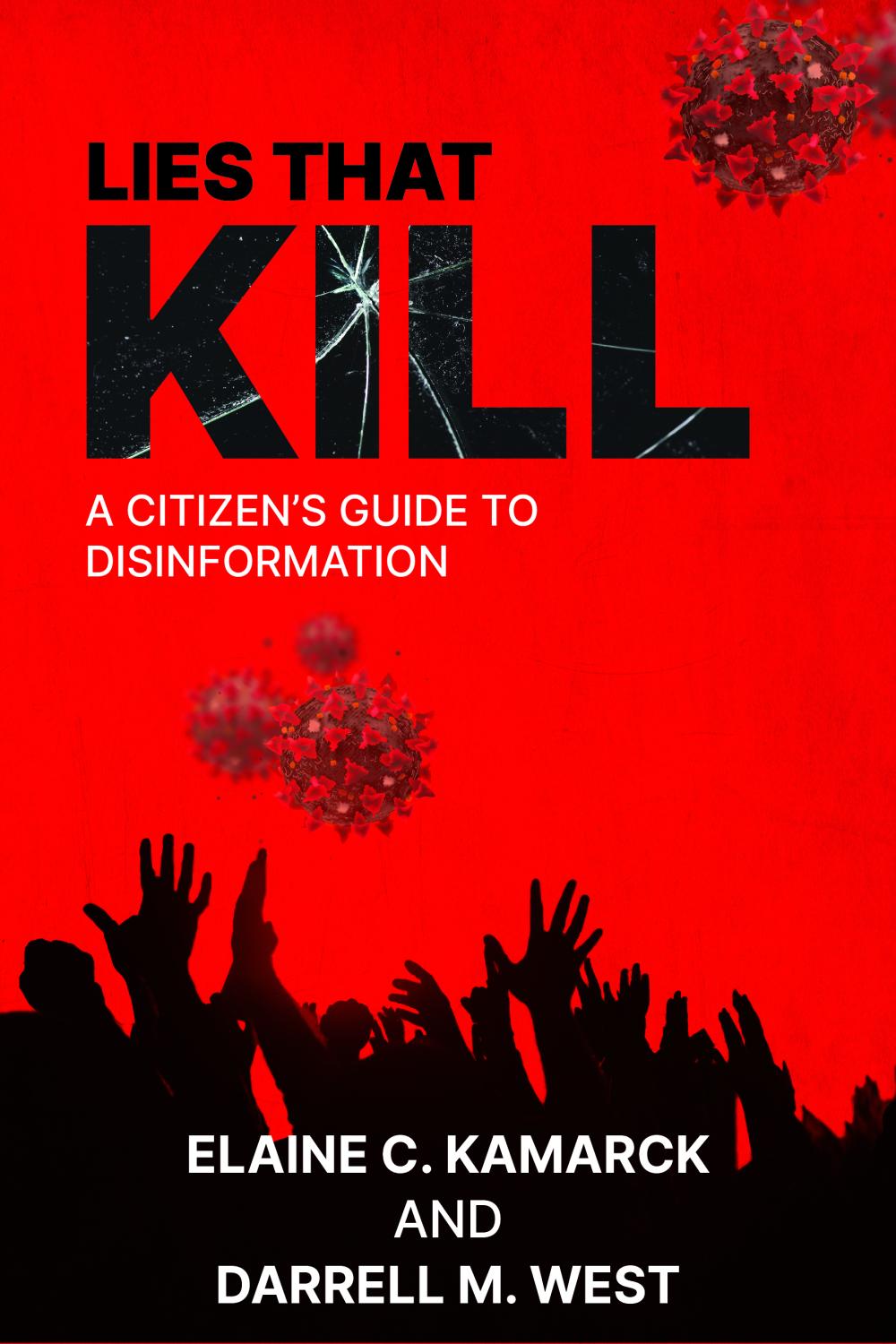Disinformation thrives in the toxic political environment that exists today both in the United States and around the world. These falsehoods are made possible by rapid advances in cheap, digital technology and are promoted by often-nefarious organized networks. These networks, which exist across the political spectrum, can make people rich through subscription fees, advertising revenue, and merchandise sales. This is a book for concerned citizens who want to recognize disinformation, understand it, and protect themselves and others from lies that can kill.
Using case studies in the areas of election integrity, climate change, public health, race, war, and governance, authors Elaine Kamarck and Darrell West show how our political, social, and economic environment makes disinformation not only believable to large numbers of people but also quickly disseminated.
But the authors also argue that we are not doomed to live in an apocalyptic, post-truth world but instead can take actions that are consistent with our long-held and cherished free speech values. Citizen education can go a long way toward making us more discerning consumers of online materials, and Kamarck and West show how we can reduce disinformation risks through digital literacy programs, regulation, legislation, and negotiations with countries that often harbor disseminators of disinformation.
Authors



